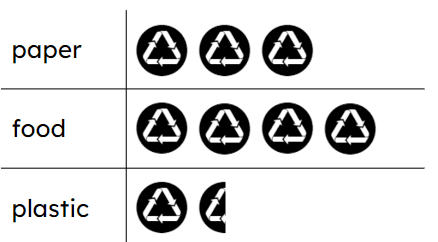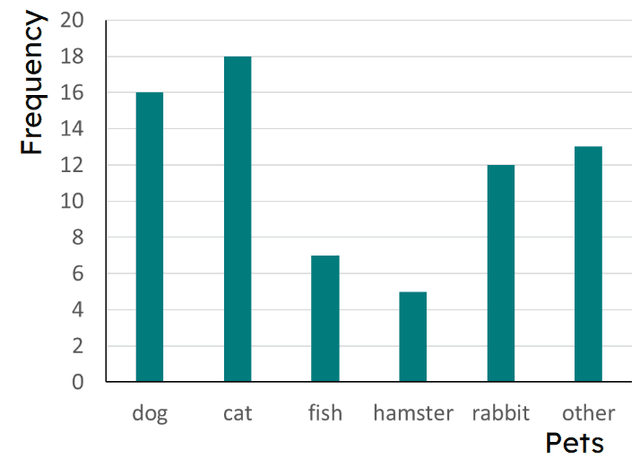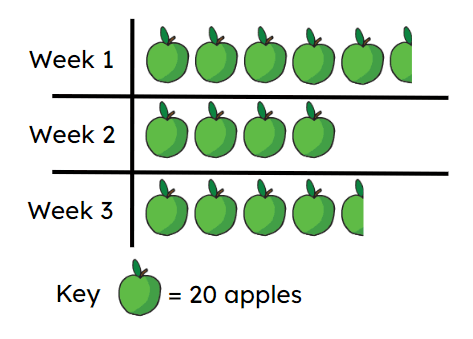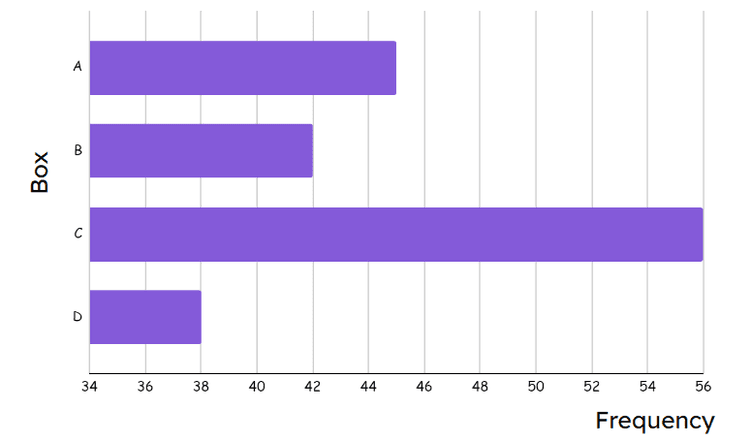Checking understanding of bar charts and pictograms
I can construct/interpret bar charts and pictograms.
Checking understanding of bar charts and pictograms
I can construct/interpret bar charts and pictograms.
Lesson details
Key learning points
- Certain data is suitable for a pictogram or bar chart.
- The shape of the graph can be estimated from the data.
- For larger data sets, technology can make constructing graphs quicker.
Common misconception
Pupils may miss the key in a pictogram, or the axes labels on a bar chart.
Pupils could be provided with a success criteria list, which they get in a habit of checking after constructing pictograms and bar charts.
Keywords
Bar chart - A bar chart (bar graph) is a graph consisting of bars visually representing the frequency of objects or groups.
Pictogram - A pictogram (pictograph) is a graph consisting of pictures to visually represent the frequency of objects or groups.
Licence
This content is © Oak National Academy Limited (2024), licensed on Open Government Licence version 3.0 except where otherwise stated. See Oak's terms & conditions (Collection 2).
Video
Loading...
Starter quiz
6 Questions


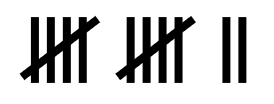



Exit quiz
6 Questions
